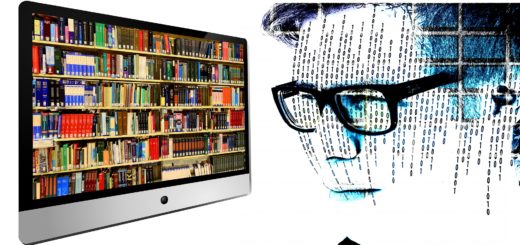Promoting Data Literacy in the University Environment: Training Experiences with Undergraduate Students
Data literacy is understood as a person’s ability to read and understand the meaning of data, which contributes to any citizen being able to make decisions that affect their professional work and/or daily life, based on data (Martín, & Iglesias, 2022). For this reason, this literacy -together with others such as information and digital literacy- should be present at all educational levels and, in particular, in university education. Similarly, it is important to highlight that data literacy and education are not only limited to technical skills for working with data, but also include an understanding of ethics and privacy in the use of data (Correa, Losada, & Gutiérrez-Cabello, 2021).
Teacher training in data literacy enables the development of strong pedagogical skills. Most notably, teachers must be able to teach students how to access, evaluate and use data effectively in the classroom. This involves the ability to design learning activities that involve exploring and analysing data, providing feedback and assessing students’ understanding of data.

The ALFADATAUniv project (PID2020-116233RB-I00), funded by the Ministry of Science and Innovation and carried out by the GIR Inforal of the University of Salamanca, aims to carry out a diagnosis of the needs of teachers in the field of Social Sciences in the university context in terms of data literacy and to respond to possible shortcomings detected in this regard by means of an online training plan. In addition, a reference framework for the evaluation of teachers’ competences in data literacy will be developed.
Our objectives are ambitious and we cannot yet offer definitive results. At present, a systematic review of the national and international literature on data literacy has been completed and a report has been produced that allows us to determine the state of the art on a subject of incipient development and interest in the university education field. At the same time, we have identified and analysed national and international training practices on data literacy in the university context in order to design a training scenario to develop data literacy among university teachers in the field of Social Sciences.
Likewise, an instrument has been developed and validated to enable us to detect the level of knowledge that university teachers in the field of Social Sciences in Spain have regarding the use, analysis, dissemination and management of data.
As a result of this Research Project that GIR Inforal is developing, we present some examples of training practices carried out in ten subjects taught in the Degrees in Information and Documentation, Law, Criminology, Languages, Literatures and Romanic Cultures, Pedagogy, Teaching and Social Education of the University of Salamanca, which have served to introduce more than 300 students to data literacy through the integration of data in the curricular programme of the subject through Evidence-Based Practices (EBP), in the use of technological tools (data visualisation software, spreadsheets, …), in approaches based on the resolution of data problems, and in the use of data analysis, in approaches based on problem solving, in the promotion of critical thinking, in collaborative learning and in the development of metacognitive skills, among others.
The first training practice was based on the problem-solving methodology, and consisted of solving hypothetical information needs through the use of different data sources that allow the retrieval of datasets, both in the public administration environment and in the research context. Students were also given practical exercises that required the use of information management and visualisation tools that enable both the creation of infographics (Infogram) and the analysis and representation of data, using the Microsoft Excel programme and the Google My Maps platform. The practical exercises were adapted at all times to the subject matter of the discipline. To this end, training sessions were held beforehand, the purpose of which was for the students to know and learn the use of resources and sources of information discovery, and to facilitate the location of open and statistical data, among others. Subsequently, different multiple-choice questionnaires were carried out through the Studium virtual platform, in which information problems were posed that students solved by putting into practice the acquired competence in data literacy.
In the second training practice, data literacy was introduced through the Evidence-Based Practice methodology in the training programme of the ten subjects mentioned above. In this case, the practice consisted, on the one hand, in training in data management through the use of software that facilitates the capture, organisation, description and dissemination of bibliographic information such as Refworks and Mendeley; and, on the other hand, in the design of information products based on evidence previously collected and made up of processed qualitative-conceptual data, based on its identification, location, selection and retrieval in repositories, search engines and databases.
In summary, the incipient development of studies related to data literacy, as another competence in the context of information literacy, together with the scarcity of research focused on finding out about this literacy among university teachers and the scarcity of proposals for training actions in this sense, is what may generate the need, in the medium term, to train teachers at this educational level in data literacy so that this training can then be transferred to their students, at a stage when the latter already handle significant amounts of information and data, and need to filter and critically evaluate information in order to identify and manage misinformation, information overload and falsified data.
References
Correa, J.M., Losada, D., & Gutiérrez-Cabello, A. (2021). Big Data y la alfabetización posthumana del futuro profesorado. Sociología y Tecnología, 11(Extra_2), 102-122. https://doi.org/10.24197/st.Extra_2.2021.102-122
Martín-González, Y. & Iglesias-Rodríguez, A. (2022). Alfabetización en Datos en las bibliotecas-CRAI españolas: Análisis descriptivo y propositivo. Revista Española de Documentación Científica, 45(2), e322. https://doi.org/10.3989/redc.2022.2.1857

Authors:
Ana Iglesias Rodríguez, Yolanda Martín González y Azucena Hernández Martín
GIR Inforal. Universidad de Salamanca






